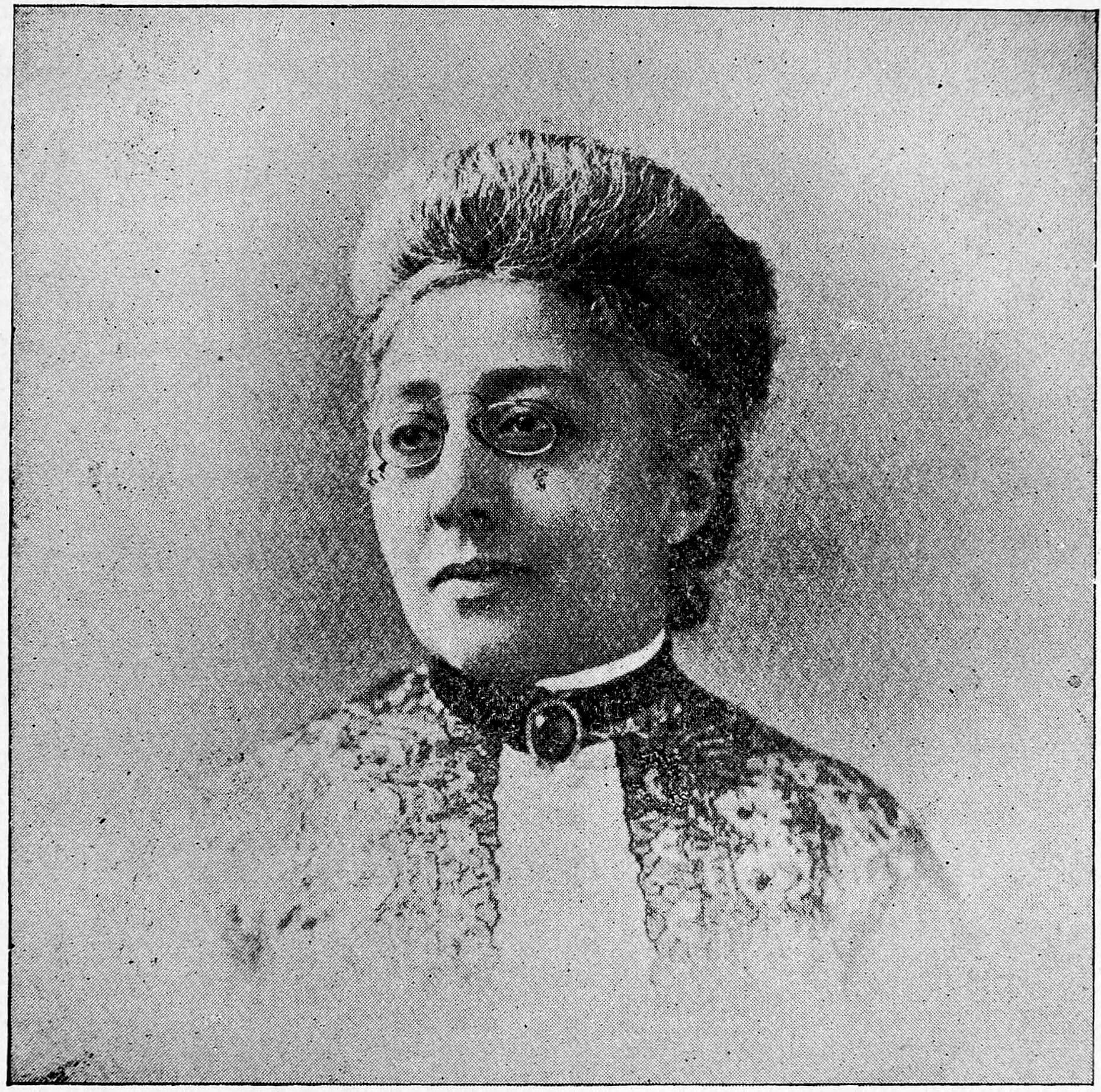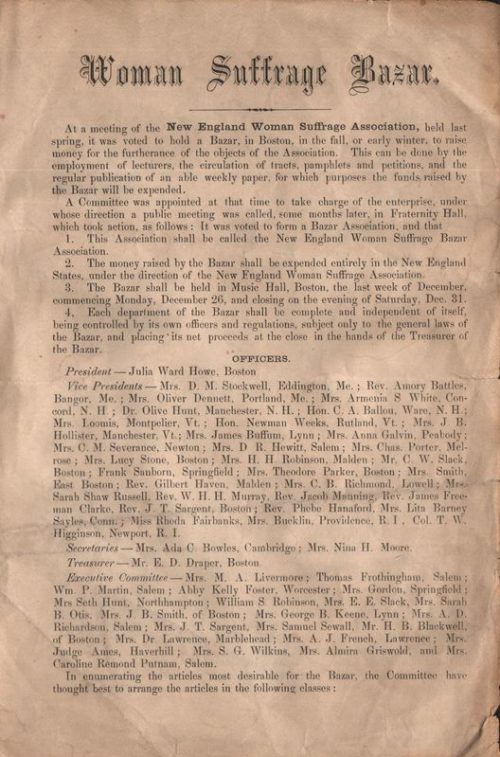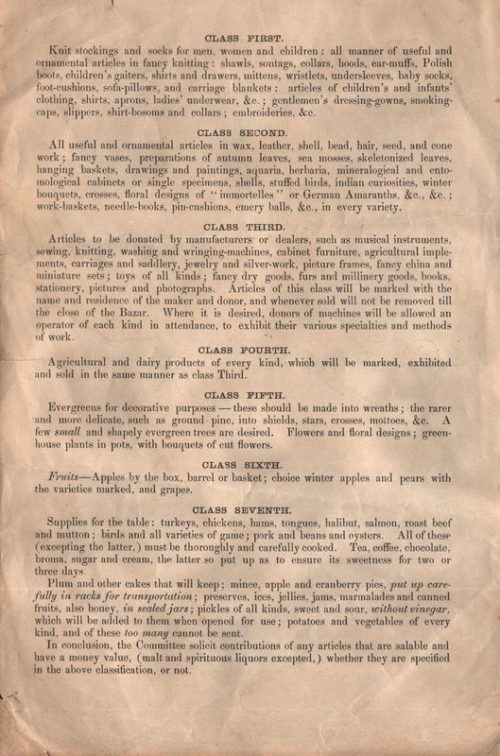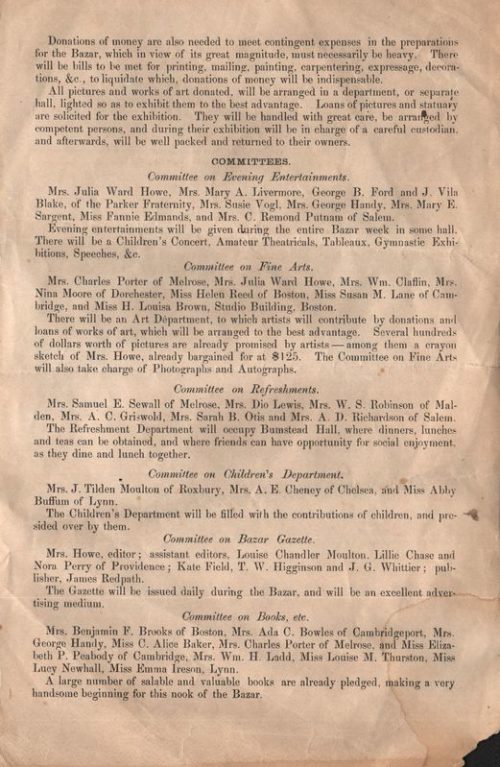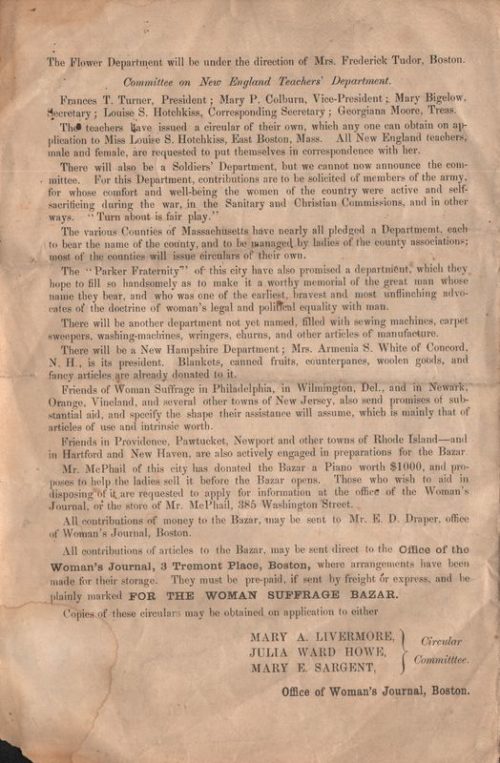The West End Woman Suffrage League
The West End Woman Suffrage League connected African-American leaders in the old West End to the larger movement for women’s suffrage in Boston, the rest of New England, and the country as a whole.
The West End Woman Suffrage League was founded in 1887 by Josephine St. Pierre Ruffin, Butler Wilson, Eliza Garrow, Arianna Sparrow, and Lewis Hayden. These leaders joined other prominent African Americans of Boston to found the organization at the Twelfth Baptist Church, on Warren St. in Roxbury. The Twelfth Baptist Church regularly raised funds to support enslaved people running away to the North. Lewis Hayden and his wife, Harriet Hayden, were instrumental to the success of Underground Railroad “stops” in Boston. Josephine St. Pierre Ruffin and her husband, George Ruffin, lived in the old West End on Cambridge Street. The Haydens’ tailoring business resided on Cambridge Street, though Lewis and Harriet lived on Phillips Street. Geographic proximity and a shared commitment to women’s suffrage and Black freedom made the West End Woman Suffrage League possible.
Josephine St. Pierre Ruffin became the first president of the West End Woman Suffrage League, which affiliated with the Massachusetts Woman Suffrage Association. Woman’s Journal, a periodical by Boston suffragist Lucy Stone and the official outlet of the American Woman Suffrage Association, reported that the West End Woman Suffrage League met on October 29, 1887 at 3 Park Street in Beacon Hill. The League’s motto was “All rights for all,” which reflected members’ solidarity for sexual and racial equality. At the October 29 meeting, a committee of nine voted to bring new members, including “at least one gentleman” each. The West End Woman Suffrage League also participated in the annual Bazaar of the New England Woman Suffrage Association. The Bazaar, first held at Boston’s Music Hall in 1870, raised money for the continuation of suffrage activism. According to Cora Scott Pond, Woman’s Journal correspondent, every member of the West End Woman Suffrage League “promised to try to collect ten cents each from ten people to secure a fund for their Bazaar table, and to bring their pieces of silk, cotton, etc. for the cutting committee.” Fundraising of this kind sustained the publishing activity of widely-read suffragist periodicals and augmented the impact of work by Black suffragists to expand human equality after the abolition of slavery.
The West End Woman Suffrage League met through 1889, when the Boston Globe reported that on April 1 the League held another meeting at 3 Park Street with “good attendance and considerable interest manifested in the work to be done.” At this meeting, members rehearsed the scenes they were ready to perform in a historical pageant at Boston’s Hollis Street Theatre on May 9, 1889. In the play, Henry Blackwell, husband of Lucy Stone, played Judge Thomas Russell, a white abolitionist who spoke in 1863 at Tremont Temple along with Frederick Douglass and other Black leaders. Abolitionists gathered in that moment at Tremont Temple to wait for official news of Lincoln signing the Emancipation Proclamation. During the pageant Blackwell, playing Judge Russell, read the Emancipation Proclamation as received by the Tremont Temple audience with a scene in the background of the Proclamation’s reception by enslaved people in Memphis, Tennessee. According to the Boston Globe, “The West End League, with friends numbering about 75, [represented] the Tremont Temple scene” described above. This historical pageant contributed to Boston’s public memory of the Emancipation Proclamation, and reinforced that work remained to be done for racial and gender equality in the late-19th century. The West End Woman Suffrage League was a key local contributor to an already nationwide movement.
Article by Adam Tomasi
Source: National Park Service (Twelfth Baptist Church, Josephine St. Pierre Ruffin), Boston Globe (April 2, 1889; May 8, 1889), Woman’s Journal, Woman Suffrage Bazaar flyer, Encyclopedia Britannica, John Hope Franklin, “The Emancipation Proclamation,” West End Museum (Josephine St. Pierre Ruffin and George Ruffin, Lewis Hayden)


